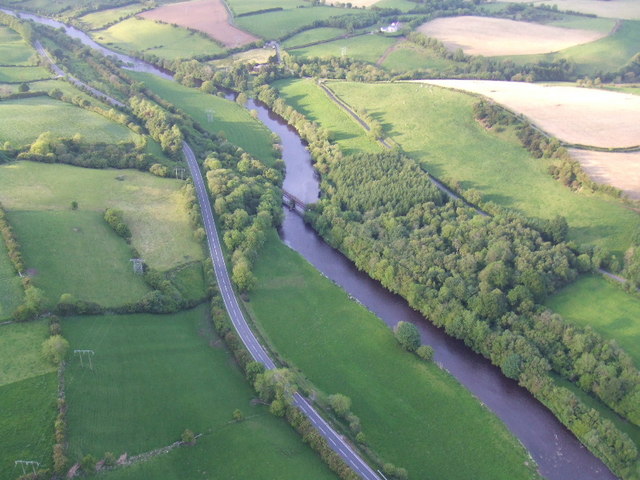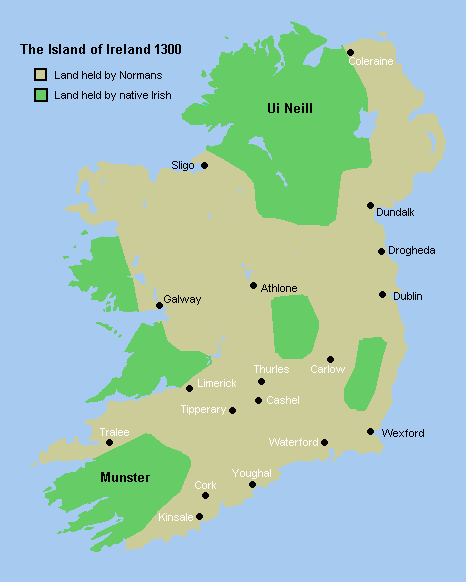|
Thomas O'Hagan, 1st Baron O'Hagan
Thomas O'Hagan, 1st Baron O'Hagan, KP, PC (Ire), QC (29 May 18121 February 1885), was an Irish lawyer and judge. He served as Lord Chancellor of Ireland from 1868 to 1874 and again from 1880 to 1881. Background and education O'Hagan was born in Belfast, the son of Edward O'Hagan, a merchant, and his wife Mary Bell, daughter of Captain Thomas Bell. He was educated at Royal Belfast Academical Institution, being in his day the only Catholic in the school. In 1836 he was called to the Irish Bar. Career Between 1838 and 1841 O'Hagan was the editor of ''The Newry Examiner''. In 1840 he moved to Dublin, where he appeared for the repeal party in many political trials, becoming an Irish Queen's Counsel in 1849. His advocacy of a continuance of the Union with Great Britain, and his appointment as Solicitor-General for Ireland in 1860 and Attorney-General for Ireland in the following year, lost him the support of the Nationalist party, but he was returned to Parliament as Liberal Memb ... [...More Info...] [...Related Items...] OR: [Wikipedia] [Google] [Baidu] |
The Right Honourable
''The Right Honourable'' (abbreviation: ''Rt Hon.'' or variations) is an honorific Style (form of address), style traditionally applied to certain persons and collective bodies in the United Kingdom, the former British Empire and the Commonwealth of Nations. The term is predominantly used today as a style associated with the holding of certain senior public offices in the United Kingdom, Canada, New Zealand, and to a lesser extent, Australia. ''Right'' in this context is an adverb meaning 'very' or 'fully'. Grammatically, ''The Right Honourable'' is an adjectival phrase which gives information about a person. As such, it is not considered correct to apply it in direct address, nor to use it on its own as a title in place of a name; but rather it is used in the Grammatical person, third person along with a name or noun to be modified. ''Right'' may be abbreviated to ''Rt'', and ''Honourable'' to ''Hon.'', or both. ''The'' is sometimes dropped in written abbreviated form, but is al ... [...More Info...] [...Related Items...] OR: [Wikipedia] [Google] [Baidu] |
Attorney-General For Ireland
The Attorney-General for Ireland was an Irish and then (from the Act of Union 1800) United Kingdom government office-holder. He was senior in rank to the Solicitor-General for Ireland: both advised the Crown on Irish legal matters. With the establishment of the Irish Free State in 1922, the duties of the Attorney-General and Solicitor-General for Ireland were taken over by the Attorney General ''of'' Ireland. The office of Solicitor-General for Ireland was abolished for reasons of economy. This led to repeated complaints from the first Attorney General of Ireland, Hugh Kennedy, about the "immense volume of work" which he was now forced to deal with single-handedly. History of the Office The first record of the office of Attorney General for Ireland, some 50 years after the equivalent office was established in England, is in 1313, when Richard Manning was appointed King's Attorney (the title Attorney General was not used until the 1530s),Casey, James ''The Irish Law Office ... [...More Info...] [...Related Items...] OR: [Wikipedia] [Google] [Baidu] |
Landlord And Tenant (Ireland) Act 1870
The Landlord and Tenant (Ireland) Act 1870 (33 & 34 Vict c 46) was an Act passed by the Parliament of the United Kingdom in 1870. Background Between the Acts of Union 1800 and 1870, Parliament had passed many Acts dealing with Irish land, but every one of them had been in the interest of the landlord against the tenant. The Incumbered Estates (Ireland) Act 1849 had led to a new class of speculators as landlords in Ireland. Their first priority was raising tenants' rents to increase their income, and they were generally considered worse than the old landlords. A report on landlord-tenant relations written by poor law inspectors in 1869 for the Chief Secretary for Ireland drew attention to the hardships inflicted on tenants under the new landlords. The Liberal Party under the leadership of William Ewart Gladstone had been elected in 1868 promising to bring justice for Ireland, including land reform. The President of the Board of Trade, John Bright, believed that the solution to ... [...More Info...] [...Related Items...] OR: [Wikipedia] [Google] [Baidu] |
County Tyrone
County Tyrone (; ) is one of the six counties of Northern Ireland, one of the nine counties of Ulster and one of the thirty-two traditional counties of Ireland. It is no longer used as an administrative division for local government but retains a strong identity in popular culture. Adjoined to the south-west shore of Lough Neagh, the county covers an area of and has a population of about 177,986; its county town is Omagh. The county derives its name and general geographic location from Tír Eoghain, a Gaelic kingdom under the O'Neill dynasty which existed until the 17th century. Name The name ''Tyrone'' is derived , the name given to the conquests made by the Cenél nEógain from the provinces of Airgíalla and Ulaid.Art Cosgrove (2008); "A New History of Ireland, Volume II: Medieval Ireland 1169-1534". Oxford University Press. Historically, it was anglicised as ''Tirowen'' or ''Tyrowen'', which are closer to the Irish pronunciation. History Historically Tyrone (then ... [...More Info...] [...Related Items...] OR: [Wikipedia] [Google] [Baidu] |
Counties Of Ireland
The counties of Ireland ( Irish: ) are historic administrative divisions of the island into thirty-two units. They began as Norman structures, and as the powers exercised by the Cambro-Norman barons and the Old English nobility waned over time, new offices of political control came to be established at a county level. Upon the partition of Ireland in 1921, six of the traditional counties became part of Northern Ireland. In Northern Ireland, counties ceased to be longer used for local government in 1973; districts are instead used. In the Republic of Ireland, some counties have been split resulting in the creation of new counties: there are currently 26 counties, 3 cities and 2 cities and counties that demarcate areas of local government in the Republic. Terminology The word "county" has come to be used in different senses for different purposes. In common usage, it can mean the 32 counties that existed prior to 1838 – the so-called traditional counties, 26 of which are ... [...More Info...] [...Related Items...] OR: [Wikipedia] [Google] [Baidu] |
Tullyhogue
Tullyhogue, also called Tullaghoge or Tullahoge (), is a small village and townland in , . It is within the civil parish of and is about two miles or three kilometres south of . Nearby |
Act Of Parliament
Acts of Parliament, sometimes referred to as primary legislation Primary legislation and secondary legislation (the latter also called delegated legislation or subordinate legislation) are two forms of law, created respectively by the legislature, legislative and executive (government), executive branches of ..., are texts of law passed by the Legislature, legislative body of a jurisdiction (often a parliament or council). In most countries with a parliamentary system of government, acts of parliament begin as a Bill (law), bill, which the legislature votes on. Depending on the structure of government, this text may then be subject to assent or approval from the Executive (government), executive branch. Bills A draft act of parliament is known as a Bill (proposed law), bill. In other words, a bill is a proposed law that needs to be discussed in the parliament before it can become a law. In territories with a Westminster system, most bills that have any possibility of becoming ... [...More Info...] [...Related Items...] OR: [Wikipedia] [Google] [Baidu] |
James II Of England
James VII and II (14 October 1633 16 September 1701) was King of England and King of Ireland as James II, and King of Scotland as James VII from the death of his elder brother, Charles II, on 6 February 1685. He was deposed in the Glorious Revolution of 1688. He was the last Catholic monarch of England, Scotland, and Ireland. His reign is now remembered primarily for conflicts over religious tolerance, but it also involved struggles over the principles of absolutism and the divine right of kings. His deposition ended a century of political and civil strife in England by confirming the primacy of the English Parliament over the Crown. James succeeded to the thrones of England, Ireland, and Scotland following the death of his brother with widespread support in all three countries, largely because the principles of eligibility based on divine right and birth were widely accepted. Tolerance of his personal Catholicism did not extend to tolerance of Catholicism in general, and ... [...More Info...] [...Related Items...] OR: [Wikipedia] [Google] [Baidu] |
Roman Catholic
Roman or Romans most often refers to: *Rome, the capital city of Italy *Ancient Rome, Roman civilization from 8th century BC to 5th century AD *Roman people, the people of ancient Rome *''Epistle to the Romans'', shortened to ''Romans'', a letter in the New Testament of the Christian Bible Roman or Romans may also refer to: Arts and entertainment Music *Romans (band), a Japanese pop group * ''Roman'' (album), by Sound Horizon, 2006 * ''Roman'' (EP), by Teen Top, 2011 *"Roman (My Dear Boy)", a 2004 single by Morning Musume Film and television *Film Roman, an American animation studio * ''Roman'' (film), a 2006 American suspense-horror film * ''Romans'' (2013 film), an Indian Malayalam comedy film * ''Romans'' (2017 film), a British drama film * ''The Romans'' (''Doctor Who''), a serial in British TV series People * Roman (given name), a given name, including a list of people and fictional characters * Roman (surname), including a list of people named Roman or Romans *Ῥωμα� ... [...More Info...] [...Related Items...] OR: [Wikipedia] [Google] [Baidu] |
Court Of Common Pleas (Ireland)
The Court of Common Pleas was one of the principal courts of common law in Ireland. It was a mirror image of the equivalent court in England. Common Pleas was one of the four courts of justice which gave the Four Courts in Dublin, which is still in use as a courthouse, its name. History According to Elrington Ball the Irish Court of Common Pleas, which was known in its early years as ''the Common Bench'' or simply ''the Bench'', was fully operational by 1276. It was headed by its Chief Justice (the Chief Justice of the Irish Common Pleas, as distinct from the Lord Chief Justice of Ireland, who was the head of the Irish Court of King's Bench). He had two (occasionally three) justices to assist him. The first Chief Justice was Sir Robert Bagod, former High Sheriff of County Limerick, a member of an old Dublin family which gave its name to Baggot Street. In the early centuries, he was often referred to as "Chief Justice of the Bench", or "the Dublin Bench". Traditionally it ... [...More Info...] [...Related Items...] OR: [Wikipedia] [Google] [Baidu] |
Tralee (UK Parliament Constituency)
Tralee was a constituency in Ireland of the Parliament of the United Kingdom, returning one Member of Parliament (MP). It was an original constituency represented in Parliament when the Union of Great Britain and Ireland took effect on 1 January 1801. The borough constituency continued to be represented until it was disfranchised in 1885. Boundaries This constituency was the parliamentary borough of Tralee in County Kerry. Members of Parliament Note: * a Member of the former Parliament of Ireland chosen by lot to sit in the UK House of Commons from 1801. Elections Elections in the 1830s Vernon Smith was appointed as a Commissioner of the Treasury, requiring a by-election. * On petition, tendered votes were allowed, altering total votes to 133 for O'Connell and 111 for Bateman, allowing O'Connell to be declared elected. Elections in the 1840s Elections in the 1850s O'Connell's death caused a by-election. ... [...More Info...] [...Related Items...] OR: [Wikipedia] [Google] [Baidu] |
%2C_née_Alice_Mary_Towneley.jpg)
_(cropped).jpg)




